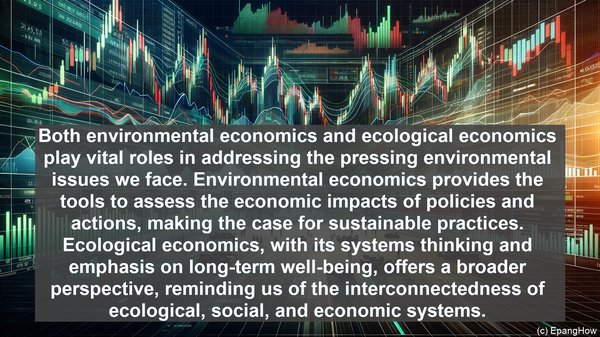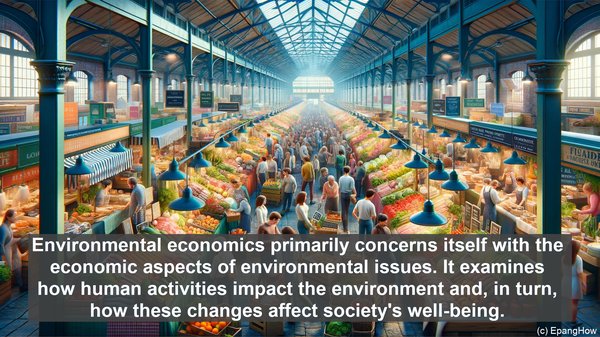Introduction: Two Sides of the Same Coin
Hello, everyone! When it comes to the intersection of economics and the environment, two terms often come up: environmental economics and ecological economics. While they may sound similar, they have distinct focuses and methodologies. Today, we’ll explore these differences and understand why both are crucial in addressing environmental challenges.
Environmental Economics: Balancing Costs and Benefits
Environmental economics primarily concerns itself with the economic aspects of environmental issues. It examines how human activities impact the environment and, in turn, how these changes affect society’s well-being. One of its key tools is cost-benefit analysis, which weighs the monetary costs of environmental degradation against the benefits of conservation or mitigation measures. By quantifying these factors, environmental economists provide policymakers with valuable insights for decision-making.

Ecological Economics: Embracing Complexity and Interconnections
In contrast, ecological economics takes a broader, more holistic approach. It recognizes that the environment is a complex system with intricate interdependencies. Rather than reducing everything to monetary values, ecological economists emphasize the intrinsic value of nature and the need to preserve its integrity. They also consider social and ethical dimensions, seeking to create sustainable systems that benefit both people and the planet.

Goals: Efficiency vs Sustainability
The goals of these two branches also differ. Environmental economics often aims for efficiency, striving to find the most cost-effective solutions to environmental problems. This can involve measures like emissions trading or market-based instruments. On the other hand, ecological economics prioritizes sustainability, seeking to ensure the long-term health and resilience of ecosystems. It may advocate for measures like ecosystem-based management or the precautionary principle.
Significance: Tackling Today’s Environmental Challenges
Both environmental economics and ecological economics play vital roles in addressing the pressing environmental issues we face. Environmental economics provides the tools to assess the economic impacts of policies and actions, making the case for sustainable practices. Ecological economics, with its systems thinking and emphasis on long-term well-being, offers a broader perspective, reminding us of the interconnectedness of ecological, social, and economic systems.
